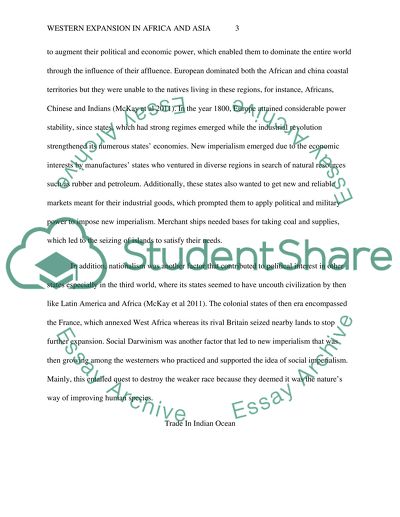Cite this document
(“Western expansion In Africa and Asia Essay Example | Topics and Well Written Essays - 1500 words”, n.d.)
Western expansion In Africa and Asia Essay Example | Topics and Well Written Essays - 1500 words. Retrieved from https://studentshare.org/history/1401197-western-expansion-in-africa-and-asia
Western expansion In Africa and Asia Essay Example | Topics and Well Written Essays - 1500 words. Retrieved from https://studentshare.org/history/1401197-western-expansion-in-africa-and-asia
(Western Expansion In Africa and Asia Essay Example | Topics and Well Written Essays - 1500 Words)
Western Expansion In Africa and Asia Essay Example | Topics and Well Written Essays - 1500 Words. https://studentshare.org/history/1401197-western-expansion-in-africa-and-asia.
Western Expansion In Africa and Asia Essay Example | Topics and Well Written Essays - 1500 Words. https://studentshare.org/history/1401197-western-expansion-in-africa-and-asia.
“Western Expansion In Africa and Asia Essay Example | Topics and Well Written Essays - 1500 Words”, n.d. https://studentshare.org/history/1401197-western-expansion-in-africa-and-asia.


